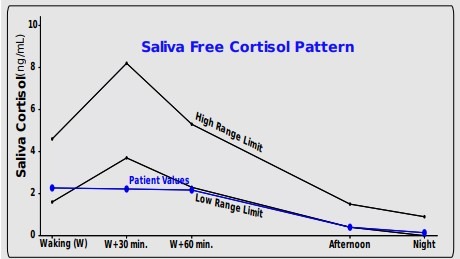You set your alarm for 5:30 am with the intention of waking early, getting in some yoga, taking a relaxing shower, and maybe enjoying a coffee before your kiddos wake up and the mayhem starts…instead, you hit snooze 5 times in a row (those 9 minutes of sleep are the best sleep you’ve gotten all night), you wake up to your toddler calling for you, have to skip ANY mommy time you planned on. You get them up, changed, fed, and ready for daycare as you slap on some yoga pants, throw your hair up in a mom-bun, and run out of the house without even grabbing water…sound familiar??? This is how I’ve gotten up for the majority of my life and it was NOT doing me any favors. Let’s get into some of the science of the benefits of slowing down in the mornings.
What hitting snooze does to our brains:
Every time you hit the snooze button it begins a new sleep cycle in your brain, so when the alarm goes off again in 9 minutes and you are in a deep sleep it can cause sleep inertia, which is that groggy feeling you get when you are half-conscious…which leads your tired brain to hit snooze again… and the cycle continues. I still struggle with hitting the snooze button some days, but the more I stick to the morning routine below, the easier it’s become for me!
The Cortisol Awakening Response:
For me personally, my Dutch hormone test, pictured below, showed that I have a very low Cortisol Awakening Response (CAR) in the morning, which lowers my motivation to get up even more. If it is really difficult for you to get going in the mornings, you may want to have this test done.

No need to rush, momma!
According to an article in Re-Origin, Rushing: Causes, Signs, and How to Break this Unproductive Habit, rushing can increase our stress hormones (cortisol, adrenaline, and norepinephrine) which can lead to feeling anxious and scattered and can also negatively affect your digestive and immune systems. But here is the WORST part – if you are already struggling with a chronic condition like fibromyalgia, chronic fatigue, or chemical sensitivities (DING, DING) rushing can produce energy that stimulates the limbic system and can force your sympathetic nervous system to go into protection mode, placing your body into a state of fight/flight/freeze. Also, the more we rush, the more our bodies feel we need to rush.
I am working really hard to master this one and I find that recognizing my physical symptoms (increased heart rate, anxiety, short fuse, feeling “in a hurry”) and then taking a small action (deep breathing, tapping, walking away, or taking a break) is the only thing that has helped me so far. I know that the more I practice, the more I’ll be able to slow down and support my poor overworked nervous system ❤️
Your brain loves routine:
“We become what we repeatedly do.”― Sean Covey
Routine is very good for our mental health as it reduces the number of small decisions we need to make throughout the day. Each small decision we make throughout the day taxes our nervous system a little bit at a time and we want to set this system up for success in the morning.
The below routine is one I’ve developed with my functional nutritionist and it has been working really well for me. You can use this as a guide and add in the things that make you feel good!
- Prepare the night before (lay out your clothes, coffee cup, towel, breakfast, and whatever you need for the morning)
- Try to avoid your phone – except for using apps like Insight Timer (we do not want to be bombarded by social media, news, emails, and to-do lists in the morning because this wreaks havoc on our nervous systems and starts our day in a state of fight, flight, or freeze)
- Start with gratitude – think of 3 things you are thankful for (starting the morning with gratitude helps you stay in the present moment and begins a positive thought process)
- Gently move your body (I do 3 rounds of Surya Namaskar- Sun Salutations while listening to the Sun Salutation Flow with Vata Energy on Insight Timer – Sun salutations can help you feel more grounded, mentally prepare for your day, stretch and strengthen your muscles, and boost your immune system – sounds good to me!) I end with a 2-3 minute child’s pose.
- Cold Shower (this one is not my favorite, but I am working up to 1-2 minutes at a time…it has helped a TON with reducing my inflammation and it increases endorphins, improves metabolism, and enhances circulation)
- Get some sunshine (if you don’t have access to sunlight in the morning, Verlight Happy Lights are fantastic and 30 minutes can trigger biochemical changes in your brain to increase serotonin – a hormone that helps to stabilize moods, regulate feelings of well-being, and happiness, regulate anxiety, and control sleep)
- Electrolytes (electrolytes can benefit you by supporting your nervous system & muscle function, keeping you hydrated and regulating pH levels in your body)
- Eat a protein-centric breakfast (centering your breakfast around protein can lead to lower glucose spikes and can also keep you fuller for longer – I recommend following the Glucose Goddess for more glucose-regulating tips!)
- Sip on something warm (my favorites are caffeine-free Fabula coffee or Yogi tea with Nutpods creamers, monk fruit sugar, and some Vital Proteins Collagen Peptides)
Together in healing 💜


